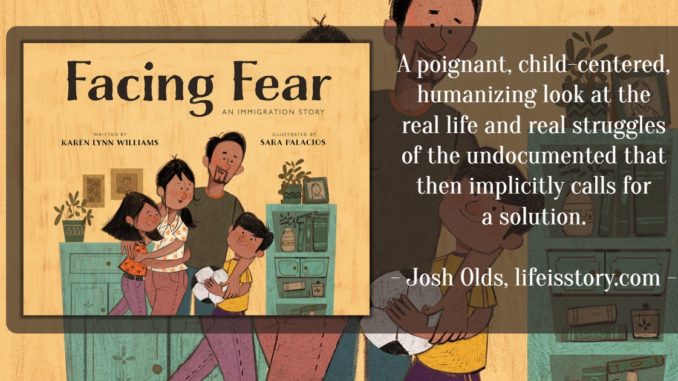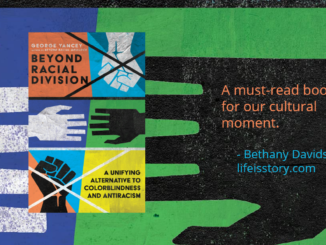
Published by Eerdmans Books for Young Readers on March 2, 2021
Genres: Children's
Buy on Amazon
Goodreads

Enrique can’t believe his father won’t let him travel to his team’s big soccer tournament. Papi says going across the checkpoint is too risky. Even though Enrique is a U.S. citizen, the rest of the family isn’t—and if the border police stop them, the family might be split up. The next morning Enrique decides he’s going to his big game, no matter what. But the day ahead will change how he sees his dad and how he defines courage…
This book is a powerful depiction of the everyday struggles faced by undocumented immigrants and their families. Sensitively told with expressive illustrations, Facing Fear explores the meaning of bravery and the strength of a community.
My favorite thing about Eerdmans’ Books for Young Readers is that they do not shy away from important and complicated issues, nor do they treat these issues as anything but the nuanced and complex things they are. So much of children’s literature is propaganda, either for the sake of simplicity or overtly as a method of teaching. Eerdmans continually books that are unique, challenging, and intended to incite discussion. Their books realize that, whatever they may teach, they must teach as a spark that ignites the flame and not present itself as the flame.
Facing Fear: An Immigration Story humanizes the experience of the undocumented immigrant by telling the story from the perspective of a child. Enrique is upset that his father won’t allow him to go to the out-of-town soccer tournament. They live close to the border and that means border checkpoints. Going out of town means the family runs the risk of being stopped. It’s no issue for Enrique, who was born in the America, but the rest of his family is undocumented.
Karen Lynn Williams captures the tension between generations—a young generation that feels fully American and an older generation that longs to be fully American but knows they are not fully safe in their adopted homeland. She presents the issue forthrightly, never once commenting politically on the issue of immigration—legal or otherwise. So much of the conversation around immigration has become vitriolic and political. Facing Fear reminds readers that when we have those conversations, we’re talking about real families and real people whose reasons for coming here are based in loss and tragedy.
For many, this book can be the spark of a discussion. What is immigration? Why would someone immigrate? What are ways in which people immigrate? How could our system of immigration be better? These are complicated issues that adults yell at each other about, yet Williams’ sensitive and compassionate telling centers the story on the families and the children that are affected, refusing to judge or condemn and instead presenting the undocumented as courageous families seeking a better life—and willing to sacrifice for such.
For some, this book might a reminder that they aren’t alone. That they are seen. That they are valued. That their worth is not in their documentation, but their humanity. Facing Fear is a poignant, child-centered, humanizing look at the real life and real struggles of the undocumented that then implicitly calls for a solution.



